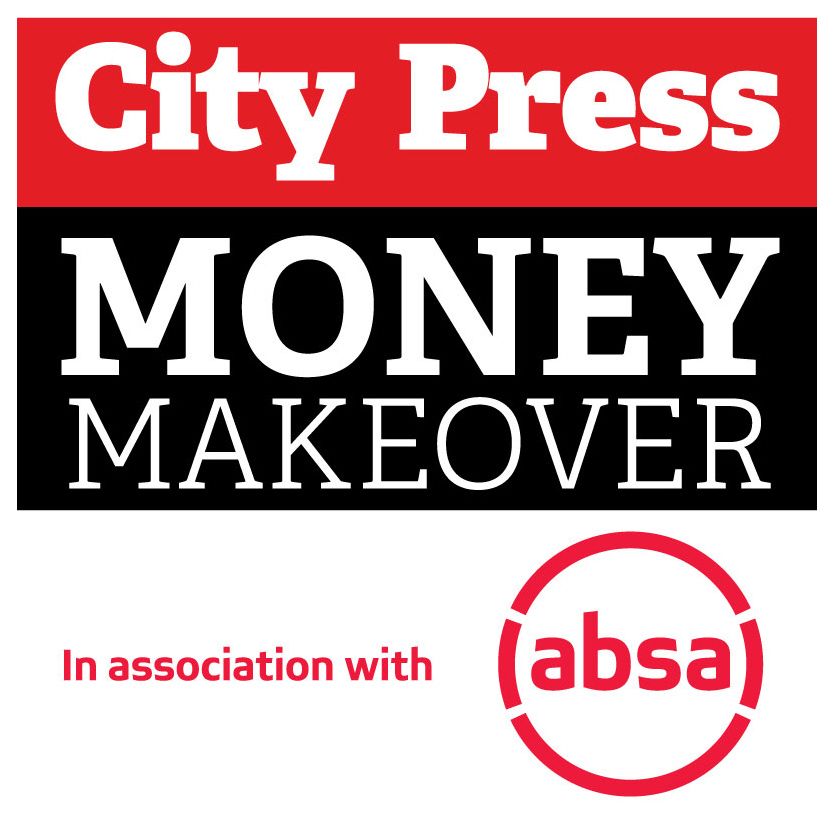How to fund a leap of faith
Sandra is taking her career in a new direction, with adaptations to her budget she can take the salary cut, writes Maya Fisher-French

When former physiotherapist Sandra entered the Absa/City Press Money Makeover Challenge, she had no idea her career was about to go in a new direction. Sandra’s initial goal was to take control of her finances, yet – just a few weeks into the challenge – she needs to adapt to a lower income so that she can follow her dream career.
“Earlier this year I applied [for a position] as a candidate lawyer. I was not confident that I would get the position but a few weeks ago, I got the call to say I had the job,” says Sandra.
This is a dream come true for Sandra, who finished studying for her law degree a few years ago but put her career change on hold when her daughter was born. Now that the opportunity has presented itself, Sandra is not prepared to let it slip through her fingers.
Ideally, Sandra would have started saving for this career change a long time ago by putting money aside and reducing her debt.
However, thanks to the fact that she has already started the Money Makeover Challenge, her financial situation has already improved, allowing her to take the leap of faith. Apart from drawing up and sticking to her first ever budget, she used her bonus to boost her emergency fund. Before entering the challenge, she would ordinarily have just spent it.
“I can’t even remember what I did with my last bonus,” admits Sandra. “I am so thankful this job opportunity came while I was doing the Money Makeover Challenge.
“Before this, I would not have been able to take the job. I would have felt stuck; now I have a budget and I feel confident about managing my money.”
Sandra admits that when she received that call, she felt anxious about how she was going to manage: “But now I feel the anxiety going – I have a plan and my budget makes me feel in control. I feel calm.”
She adds that, for the first time in her life, she is not having feelings of anxiety when she opens her bills.
“I know what I can afford and what I can do.”
Sandra’s salary will drop to a stipend of just R5 000 a month for the first two months in her new job. After that, her salary will improve, but it will still be below her current take-home pay. This is a sacrifice Sandra is prepared to make as she embarks on her new career, which will pay off in the years ahead when her earning potential grows. However, she must not let this opportunity of a lifetime turn into a financial nightmare.

STEP 0NE: Survival budget
Even on a more disciplined budget, and with assistance from her fiancé, Sandra has to cut back even further. She has drawn up a survival budget so she knows the absolute minimum amount of cash she can survive on.
A survival budget is a powerful exercise for all of us. It gives some perspective on how little you’d really need if you were faced with a financial crisis.
“I will be eating beans rather than meat [sometimes]. I have cancelled my Wi-Fi [contract] and will wear warmer clothes [in winter] in order to use less gas [for heating]. These are sacrifices I am prepared to make. It will be worth it.”
Sandra has also spoken to her mom about her financial commitments. “I told my mom she will have to do without her TV subscription for a while.”
When you are on a survival budget, the family goes on one too.

STEP TWO: Speak to creditors
Some credit agreements allow a customer to pause repayments for one or two months. In Sandra’s case, she is up to date with her car and home repayments. This provides her with leeway to request her bank to pause the repayments for a month. She is currently paid on the 15th of the month and her new employer will only pay her at the end of the month – creating a cash flow crunch. Some breathing space on her debt repayments will give her time to adapt.
Her bank has agreed to a two-month payment break on her car and a reduced repayment on her property. The skipped payments will be spread over the remaining term of the contract.
A payment break does have a financial consequence and Sandra will be paying a slightly higher instalment going forward. However, it’s a better option than taking out an overdraft to make ends meet.
An overdraft would have higher fees and interest, and becomes one more debt to repay. It also creates the temptation to use it to fund lifestyle expenses.
Many insurance policies provide for a premium break of between one and three months. With any payment break, you must always speak to your credit provider or insurer first. A payment break is not the same as just missing a payment – if you miss a payment without an agreement in place, it will reflect negatively on your credit record and penalties could apply.
STEP THREE: Hands off your pension
There is always the temptation to keep up your lifestyle by cashing in your pension. Sandra could have taken this “easy” way out. Fortunately, Sandra is adamant that she does not want to touch her pension.
Because she will not be able to afford to contribute to a retirement fund while living on her survival budget, she does not want to fall further behind with her retirement plans by drawing down. If Sandra withdrew the funds, she would have paid about R64 000 in tax.
Her Absa adviser Kavi Sigapragasan calculated that if she invests her R380 000 pension payout, in 25 years’ time, when she is 55 years old, it will be worth about R5.2 million (R1.3 million in today’s value). This is the compounding effect many people miss out on when they decide to withdraw their pension. If Sandra had to cash in the retirement fund to meet her living expenses, she would have to increase her retirement provision by an extra R5 000 a month to be in the same financial position by the age of 55.
Sigapragasan has advised Sandra to transfer her pension fund to a preservation fund. She can transfer it tax-free and would be allowed a one-off withdrawal before retirement.
While Sandra has no intention of accessing her pension money, it gives her some peace of mind knowing the funds are there if she absolutely needs them.
“If it wasn’t for Kavi, I would never have known about the preservation fund. I am so happy I had the advice to preserve [the pension money] and not pay tax.
“When I informed my human resources department, they were impressed and said I had made a good decision. It is good to know that I have some money somewhere growing; I have something to show for my life,” says Sandra.
STEP FOUR: The side hustle
As a qualified physiotherapist, Sandra has the opportunity to work over weekends. While she is concerned about finding enough time between her new job and raising her daughter, this is an option she will consider if she struggles to pay the bills.
These are all sacrifices she is prepared to make in the short term to reach her longer-term goal of becoming a fully qualified lawyer.
If you really want to get your finances in order, you have to start tracking your spending. If you cannot commit to that, it is unlikely you will be able to reach your goals.
Follow the journey – and join in – @CPMoneyMakeover on Facebook and Twitter
Absa Enterprise Development assists SMEs with access to business development support, markets access and access to funding based on certain criteria’s being met. For further information on Absa Enterprise Development you can email ed@absa.africa
You can follow the story on social media #CPMoneyMakeover

Facebook: @CPMoneyMakeover

Twitter: @CPMoneyMakeover
Subscribe below for the Money Makeover Newsletter





